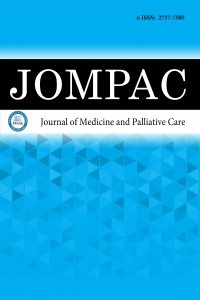1.
Cosman F, de Beur SJ, LeBoff M, et al. Clinician’s guide to prevention and treatment of osteoporosis. Osteopor Int. 2014;25(10):2359-2381.
2.
LeBoff MS, Greenspan SL, Insogna KL, et al. The clinician’s guide to prevention and treatment of osteoporosis.Osteopor Int.2022;33(10):2049-2102.
3.
Kanis JA, Kanis JA. Assessment of fracture risk and its application to screening for postmenopausal osteoporosis: synopsis of a WHO report.Osteopor Int. 1994;4:368-381.
4.
Kanis J, Johnell O, Oden A, Sernbo I, Redlund-Johnell I, Dawson A, et al. Long-term risk of osteoporotic fracture in Malmö. Osteoporosis international. 2000;11:669-74.
5.
Melton LJ, Chrischilles EA, Cooper C, Lane AW, Riggs BL. How many women have osteoporosis? JBMR Anniversary Classic.J Bone Miner Res. 2005;20(5):886-892.
6.
Johnston CB, Dagar M. Osteoporosis in older adults.Med Clin. 2020;104(5):873-884.
7.
Takayanagi H, Ogasawara K, Hida S, et al. T-cell mediated regulation of osteoclastogenesis by signalling cross-talk between RANKL and IFN-gamma. Nature. 2000;408(6812):600-605.
8.
Wu D, Cline-Smith A, Shashkova E, Perla A, Katyal A, Aurora R. T-cell mediated inflammation in postmenopausal osteoporosis. Front Immunol. 2021;12:687551.
9.
Zhao R, Wang X, Feng F. Upregulated cellular expression of IL-17 by CD4+ T-cells in osteoporotic postmenopausal women. Ann Nutr Metab. 2016; 68(2):113-118.
10.
Zhao B, Grimes SN, Li S, Hu X, Ivashkiv LB. TNF-induced osteoclastogenesis and inflammatory bone resorption are inhibited by transcription factor RBP-J. J Exp Med. 2012;209(2):319-334.
11.
Kutsal FYG. Kemik mineral yoğunluğu ölçümü ve kemik yapının görüntülenmesi. Türkiye Klinikleri Fiziksel Tıp ve Rehabilitasyon-Özel Konular. 2019;12:47-52.
12.
Huang C, Li S. Association of blood neutrophil lymphocyte ratio in the patients with postmenopausal osteoporosis.Pakistan J Med Sci. 2016;32(3):762.
13.
Bala MM, Bala KA. Bone mineral density (BMD) and neutrophil-lymphocyte ratio (NLR), monocyte-lymphocyte ratio (MLR), and platelet-lymphocyte ratio (PLR) in childhood thyroid diseases.Eur Rev Med Pharmacol Sci. 2022;26(6):1945-1951.
14.
Eroğlu S, Karataş G. Platelet/lymphocyte ratio is an independent predictor for osteoporosis.Saudi Med J. 2019;40(4):360.
15.
Fang H, Zhang H, Wang Z, Zhou Z, Li Y, Lu L. Systemic immune-inflammation index acts as a novel diagnostic biomarker for postmenopausal osteoporosis and could predict the risk of osteoporotic fracture.J Clin Laborat Analys. 2020;34(1):e23016.
16.
Fucà G, Guarini V, Antoniotti C, et al. The pan-immune-inflammation value is a new prognostic biomarker in metastatic colorectal cancer: results from a pooled-analysis of the Valentino and TRIBE first-line trials. Br J Cancer. 2020;123(3):403-409.
17.
Susok L, Said S, Reinert D, et al. The pan-immune-inflammation value and systemic immune-inflammation index in advanced melanoma patients under immunotherapy. J Cancer Res Clin Oncol. 2022;148(11):3103-3108.
18.
Tutan D, Doğan AG. Pan-immune-inflammation index as a biomarker for rheumatoid arthritis progression and diagnosis.Cureus.2023;15(10):e46609.
19.
Lee LE, Ahn SS, Pyo JY, Song JJ, Park YB, Lee SW. Pan-immune-inflammation value at diagnosis independently predicts all-cause mortality in patients with antineutrophil cytoplasmic antibody-associated vasculitis.Clin Exp Rheumatol. 2021;39(2):S88-S93.
20.
Zhang S, Ni W. High systemic immune-inflammation index is relevant to osteoporosis among middle-aged and older people: a cross-sectional study.Immun, Inflamm Dis. 2023;11(8):e992.
21.
Kanis JA, Cooper C, Rizzoli R, Reginster JY, Scientific Advisory Board of the European Society for Clinical and Economic Aspects of Osteoporosis (ESCEO) and the Committees of Scientific Advisors and National Societies of the International Osteoporosis Foundation (IOF). European guidance for the diagnosis and management of osteoporosis in postmenopausal women. Osteopor Int. 2019;30(1):3-44.
22.
Jordan, KM, Cooper C. Epidemiology of osteoporosis.Best Pract Res Clin Rheumatol. 2002;5(16):795-806.
23.
Li Y, Toraldo G, Li A, et al. B cells and T cells are critical for the preservation of bone homeostasis and attainment of peak bone mass in vivo. Blood. 2007;109(9):3839-3848.
24.
Cenci S, Weitzmann MN, Roggia C, et al. Estrogen deficiency induces bone loss by enhancing T-cell production of TNF-alpha. J Clin Invest. 2000;106(10):1229-1237.
25.
Hajishengallis G, Moutsopoulos NM, Hajishengallis E, Chavakis T. Immune and regulatory functions of neutrophils in inflammatory bone loss. Semin Immunol. 2016;28(2):146-158.
26.
Koupenova M, Clancy L, Corkrey HA, Freedman JE. Circulating platelets as mediators of immunity, inflammation, and thrombosis.Circ Res.2018;122(2):337-351.
27.
Saxena Y, Routh S, Mukhopadhaya A. Immunoporosis: role of innate immune cells in osteoporosis. Front Immunol. 2021;12:687037.
28.
Kale I. The predictive role of monocyte-lymphocyte ratio and platelet-lymphocyte ratio in postmenopausal osteoporosis.J Clin Invest Surg. 2021;6(2):141-147.
29.
Du YN, Chen YJ, Zhang HY, Wang X, Zhang ZF. Inverse association between systemic immune-inflammation index and bone mineral density in postmenopausal women. Gynecol Endocrinol. 2021;37(7):650-654.
30.
Weng W, Li H, Zhu S. An overlooked bone metabolic disorder: cigarette smoking-induced osteoporosis.Genes. 2022;13(5):806.
31.
Trevisan C, Alessi A, Girotti G, et al. The impact of smoking on bone metabolism, bone mineral density and vertebral fractures in postmenopausal women.J Clin Densitomet. 2020;23(3):381-389.

